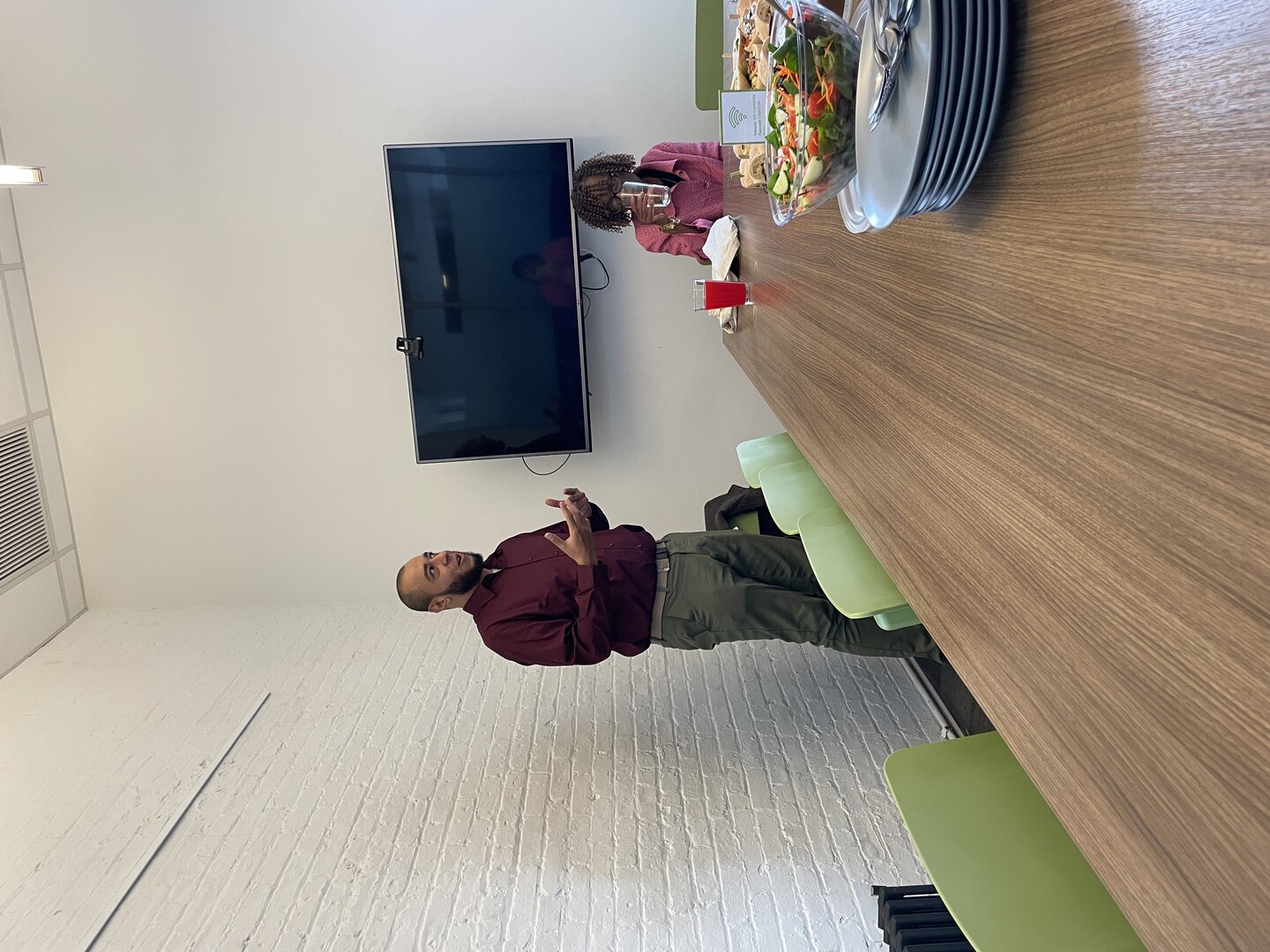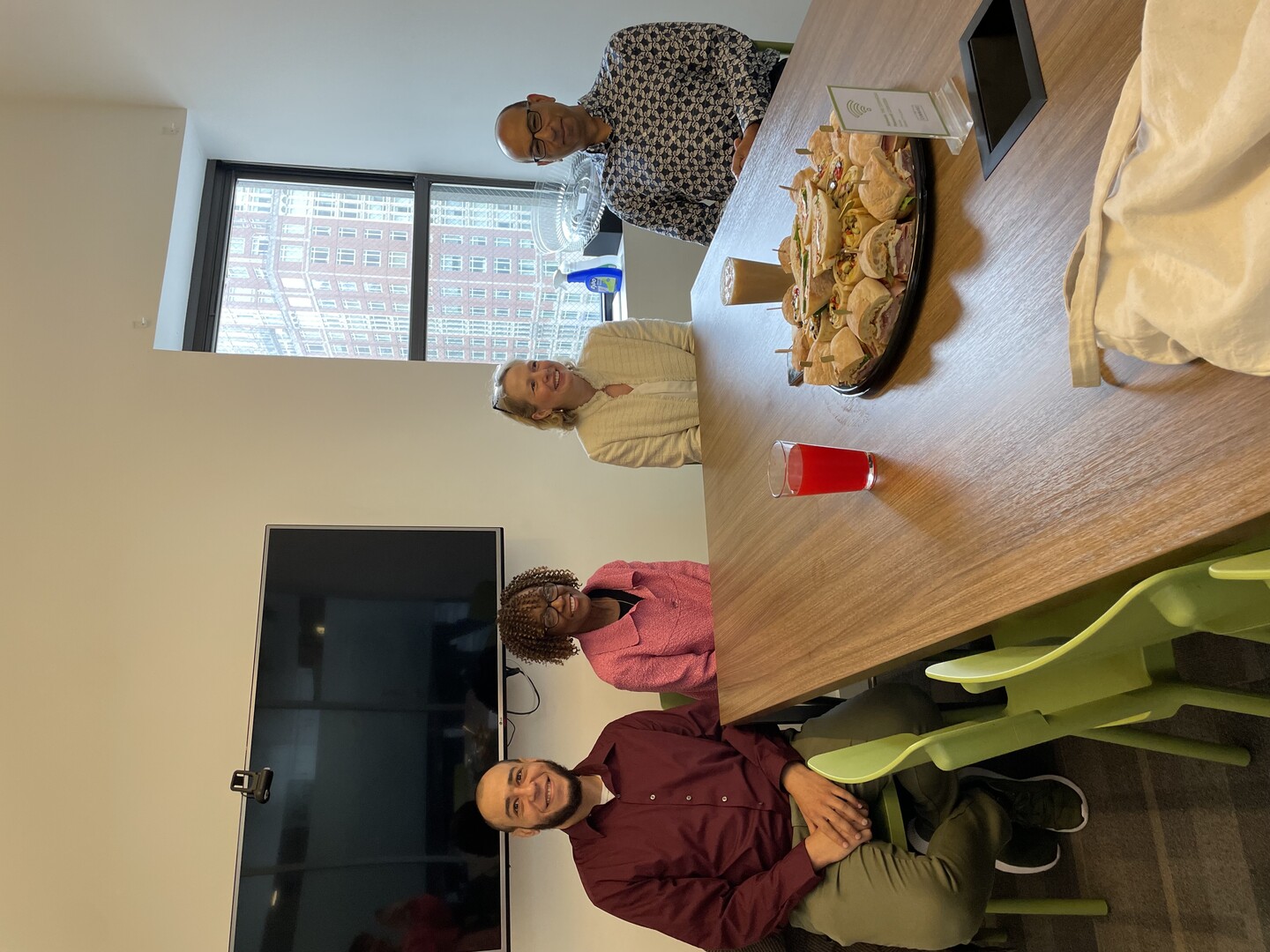Table of Contents


The Power of Anthologies in Shaping a Writer’s Voice
Last week, I had the privilege of joining a writer’s panel at The Commons in New York City, where I spoke alongside two fellow authors and a publisher at an event tailored for business owners. The discussion centered on the transformative power of writing, with a particular focus on anthologies, a literary form that has profoundly shaped my voice as a writer. Anthologies, by their very nature, are collaborative works that bring together diverse voices to explore shared themes, offering a unique platform for resistance, reflection, and radical belonging. As an anthropologist and writer, I find anthologies to be a compelling medium for weaving personal narratives into broader societal conversations, creating spaces where marginalized voices can resonate.
During the panel, I shared my experiences contributing to three significant anthologies: Rebel With a Cause, Against the Grain: Finding Belonging In A World of Resistance, and Grateful: A Heart Wide Open. These anthologies have been instrumental in helping me articulate themes of identity, disruption, and truth-telling within systems that often marginalize certain voices. For example, Rebel With a Cause allowed me to explore the intersections of personal rebellion and social justice, while Against the Grain provided a space to reflect on finding community in a world that often feels exclusionary. Grateful: A Heart Wide Open delved into the emotional and spiritual dimensions of gratitude, offering a counter-narrative to the cynicism that can pervade modern discourse.
Anthologies are more than just collections of essays or stories; they are acts of resistance and collaboration. They challenge the traditional, solitary model of authorship by fostering dialogue among contributors, each bringing their unique perspective to the table. For writers, anthologies offer a chance to engage with complex themes in a way that feels both personal and collective. They are a medium where individual stories can amplify one another, creating a tapestry of voices that speak to universal truths. As I shared during the panel, my work in these anthologies has not only honed my craft but also deepened my understanding of how writing can serve as a tool for social change.
The process of contributing to anthologies also requires a willingness to embrace vulnerability. Sharing personal stories in a collaborative format means trusting your co-authors and editors to honor your voice while ensuring the anthology’s cohesive vision. This dynamic makes anthologies a powerful medium for writers who wish to explore their identities and experiences in dialogue with others. For aspiring authors, I recommend seeking out anthologies that align with your values and vision, as they can provide both a creative outlet and a community of like-minded storytellers.
Navigating the Writing Process: Discipline, Craft, and Community
The panel discussion also ventured into the less glamorous but equally vital aspects of writing such as process, discipline, and the deeper questions of who gets to tell which stories and how. Writing for anthologies demands a unique blend of discipline and creativity, as contributors must adhere to deadlines, thematic guidelines, and word counts while maintaining their authentic voice. My experiences in academic writing during my master’s program have been particularly influential in shaping my approach to this process. In academia, writing is a rigorous exercise that bridges theory and lived experience, requiring both analytical precision and creative expression.
This duality is especially relevant in anthologies, where personal narratives must resonate with broader themes while remaining grounded in the writer’s truth.
One of the challenges of writing for anthologies is navigating the balance between individual expression and collective coherence. Each contributor brings their unique perspective, but the anthology as a whole must feel unified. This requires a level of discipline that goes beyond simply putting words on the page. It involves revising drafts to align with the anthology’s vision, collaborating with editors to refine your work, and sometimes letting go of passages that don’t serve the larger narrative. For me, this process has been both humbling and empowering, as it forces me to refine my craft while staying true to my voice.
Another key aspect of writing for anthologies is the question of representation and who gets to tell the story, and how is it told? During the panel, we discussed the importance of amplifying marginalized voices in anthologies, particularly those from communities that have been historically silenced. Anthologies provide a platform for these voices to be heard, but they also require writers to approach their work with intention and accountability. As an anthropologist, I’m acutely aware of the power dynamics inherent in storytelling, and I strive to approach my contributions to anthologies with a sense of responsibility to the communities I represent.
The panel also highlighted the role of community in the writing process. Writing for anthologies is inherently collaborative, as contributors work together to create a cohesive collection. This sense of community extends beyond the page, as writers often form lasting connections with their co-authors and editors. For me, these relationships have been one of the most rewarding aspects of working on anthologies. They remind me that writing, at its core, is about connection. Whether it’s connecting with readers, fellow writers, or the larger human experience.
Choosing the Right Publisher: A Cautionary Tale for Anthology Contributors
A pivotal moment in the panel discussion was the conversation about discernment in publishing, particularly when contributing to anthologies. As an aspiring author, the allure of seeing your work in print can be intoxicating, but it’s crucial to approach publishing decisions with caution. Not all publishers are created equal, and the wrong choice can lead to exploitation rather than empowerment. I shared a word of advice with the audience: Be mindful of who you get in bed with when it comes to publishers. The desire to be published should never overshadow the need to retain ownership of your story, your time, and your values.
When contributing to anthologies, it’s essential to research the publisher’s reputation and track record. Some publishers prioritize profit over quality, rushing anthologies to market without proper editing or promotion. Others may impose restrictive contracts that limit your control over your work or fail to compensate contributors fairly. During the panel, the publisher in attendance emphasized the importance of transparency in the publishing process, from clear communication about royalties to ensuring contributors have a say in the anthology’s direction. This resonated deeply with me, as I’ve seen firsthand how a supportive publisher can elevate an anthology while a negligent one can undermine it.
For writers new to anthologies, I recommend asking critical questions before signing on to a project. Who is editing the anthology, and what is their vision? What is the publisher’s plan for marketing and distribution? Will contributors retain the rights to their individual pieces? These questions can help you avoid predatory publishers who may exploit your work for their gain. In my own journey, I’ve been fortunate to work with publishers who value collaboration and amplify the voices of their contributors, but I’ve also heard horror stories from peers who weren’t so lucky.
The panel also touched on the unique challenges of publishing anthologies in today’s literary landscape. With the rise of self-publishing and digital platforms, there are more opportunities than ever to contribute to anthologies, but this also means a greater risk of encountering unscrupulous publishers. As writers, we must advocate for ourselves and our work, ensuring that our contributions to anthologies are treated with the respect they deserve. By choosing publishers who align with our values, we can create anthologies that not only tell powerful stories but also foster a sense of empowerment and agency for all contributors.
The Future of Anthologies: Resistance, Healing, and Truth-Telling
Looking ahead, I’m thrilled to share that I’ll be contributing to another anthology set to release next month. This upcoming project is yet another opportunity to collaborate with fellow writers, explore new themes, and contribute to a literary landscape shaped by resistance, healing, and truth-telling. Anthologies have a unique ability to capture the zeitgeist of a moment, bringing together voices from diverse backgrounds to reflect on shared experiences. In a world that often feels divided, anthologies serve as a reminder of our shared humanity, offering spaces for dialogue, reflection, and transformation.
The themes of resistance and healing are particularly resonant in today’s anthologies. As I prepare for this upcoming project, I’m reflecting on how my contribution can speak to the challenges and opportunities of our current moment. Whether it’s addressing systemic inequities, exploring personal growth, or celebrating resilience, anthologies provide a platform for writers to engage with these issues in meaningful ways. For me, each anthology is a chance to expand my perspective, collaborate with others, and contribute to a broader narrative of change.
Speaking to a room full of entrepreneurs at The Commons reminded me of the parallels between writing anthologies and building a business. Both require vision, perseverance, and a willingness to take risks. Writers and entrepreneurs alike must navigate rejection, refine their craft, and fight for their voices to be heard. Most importantly, both create something that can’t be undone—whether it’s a business that transforms lives or an anthology that captures a moment in time. As I continue my journey as a writer, I’m grateful for the opportunities anthologies provide to connect, create, and contribute to a world that desperately needs stories of resistance, healing, and hope.
In conclusion, anthologies are more than just a literary form, they are a call to action. They challenge us to tell our stories, amplify marginalized voices, and build communities of writers and readers who believe in the power of words. As I look forward to my next anthology project, I’m reminded of the words we shared on the panel: Writing is an act of creation, resistance, and legacy. Through anthologies, we create something enduring, something that speaks to who we are and who we hope to become.
View our press section for more blog post entries

Recent Comments